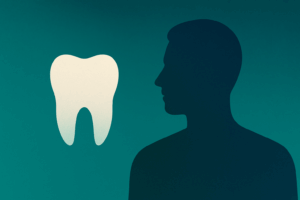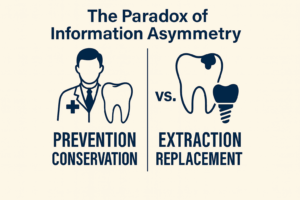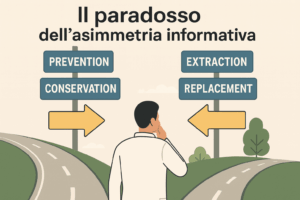In the modern world, the informed consent between doctor and patient is supposed to be the pillar of their relationship.
But… it hardly ever is.
Informed consent is built on “common sense”, yet I’ve rarely heard something less sensible than informed consent itself.
For weak doctors, it’s a way to hide — handing the burden of decision to the patient.
For “alpha” doctors, it’s a way to go on with their plan — reassured they’ve mentioned the alternatives.
Either way, it’s often a void instrument.
Because in the very nature of the doctor–patient relationship, every doctor will express their beliefs and biases — subtly, through words, tone, and numbers.
If you say to a patient, “We can treat this tooth successfully — the success rate is 95% at five years,” it feels completely different than saying, “One out of twenty of these teeth fails dramatically and ends up needing an implant, losing all the work done.”
The data are identical — the emotion is not.
Humans hate to lose more than they love to win, as Kahneman brilliantly showed.
And it takes very little effort to twist numbers just enough to drive the “informed” consent where we want it to go.
In a world where implantology has disrupted dentistry, the ability to communicate our ethical convictions clearly has become a fundamental skill.
Implants were born to replace missing teeth, yet in the last decades — for the sake of speed and money — they’ve become a quick replacement for teeth that could still be saved.
Every week I see patients who lost teeth for trivial reasons:
“The decay was too deep…” — just a class II.
“You’d need periodontal surgery to save it…” — just a subgingival margin.
“You’d better go for an all-on-X…” — just a periodontal patient.
Few of them really need full arch on implants ….
In this world, those who refuse to follow the herd must speak loudly and clearly.
Being “neutral” means abandoning the patient to a decision they’re not equipped to make.
Neutrality often harms more than it protects.
Standing firm in our convictions — as long as we’d offer the same treatment to our daughter — is not arrogance.
It’s ethics.
Because guiding our patients doesn’t limit their freedom.
Freedom is an illusion .
It gives it direction.







